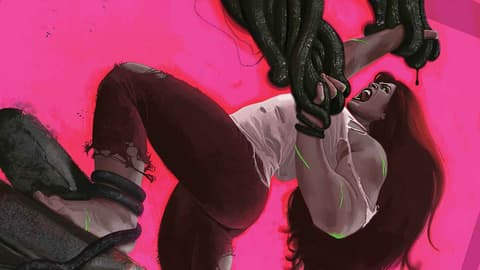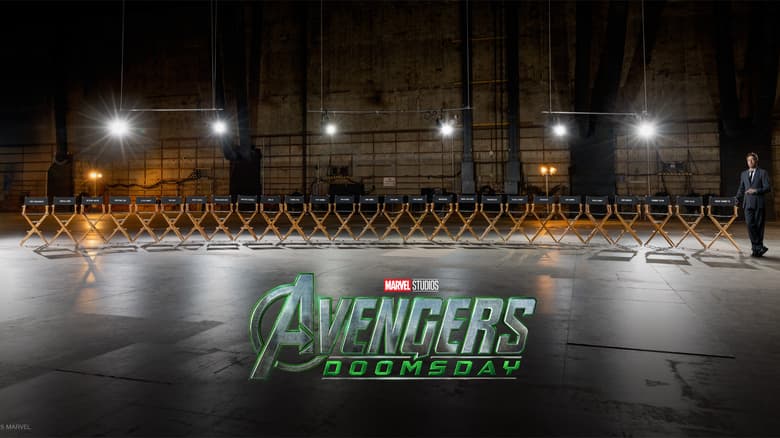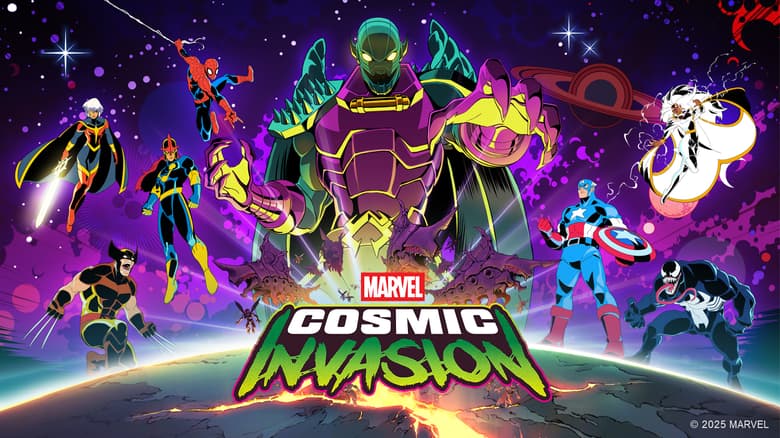Hulk: Tackling Trauma
We bring Jen Walters to a clinical psychologist for examination!

In the pages of HULK, Jen Walters struggles with her personal aftermath from Civil War II. A fight with Thanos left her in a coma, and thus powerless to stop her cousin Bruce Banner’s death at the hands of Hawkeye. In trying to move past these events, Jen has begun work at the Law Offices of Ryu, Barber, Zucker, & Scott. But when a new client appears to be going through many of the same struggles that Jen herself now faces, she sees an opportunity to help someone and maybe to handle her own trauma.
This story arc provides a unique look at a super hero dealing with common mental health issues. We sat down with clinical psychologist Dr. Andrea Letamendi to get a better of idea of what Jen’s going through and how her Hulk side is coloring her experience.
Marvel.com: Internal monologue is a very common device in comics, but it’s used even more in this book to highlight Jen’s fragile mental state following the events of Civil War II.
Andrea Letamendi: For this narrative, one of the reasons that it’s important for us to get her internal monologue is for us to see the two sides of her. We obviously know the two sides that this character is built on, but in these first few issues we’re seeing another duality. With the internal monologue, we see those constant worries, intrusive thoughts, the second-guessing and reminding herself that everything’s not normal. And that’s out of sync with her professional voice, the person she has to be on the outside.
I really appreciated Jen’s internal monologue that would include statements about what’s normal and not normal; how things moving forward would not be normal. Because that’s definitely a common experience for someone who’s been psychologically transformed after a traumatic event. And it underscores the idea that whether we want to label it or not, her mental health condition—her post-traumatic response—is not considered a disease, it’s a normal response to something that was abnormal. I love that this series is framing that for us, to let us know that yes, she’s questioning normality, but she is still intact. She’s acknowledging that she is still normal, and that helps readers to realize that what was crazy or abnormal, it wasn’t the person, but what happened to the person.
Marvel.com: In Jen’s previous solo series SHE-HULK, she was working at her own practice. But following her trauma, instead of returning to that work, she seeks to surround herself with people who can support her. Yet at the same time, these people provide a completely new source of stress…
Andrea Letamendi: I think it would be fair to say through these issues we’re seeing presentations of post-traumatic stress responses. The other people in the personal and professional aspects of her life are offering support, and are actually quite kind and gentle toward her and want to be around her and to connect with her. But she’s rejecting them because they are triggering her; they are sources of stress for her because she’s reminded of her loss and her memory of what happened to Bruce.
Her urge to get back into the office, and to get back to practicing law, is a very common reaction. She’s trying to establish normalcy again; she’s trying to get distracted with every day—almost mundane—activities so that she can reestablish what she thinks the world should look like. Of course, it’s not that simple and straightforward. She’s still going to be haunted by her past, and yet the yearning for those mundane activities, for the routine, is very relatable. She’s trying to grasp on to anything that feels like her pre-trauma life.
Marvel.com: Jen uses a series of online baking tutorials as a sort of stress-relief outlet. Would you say that’s reflective of the kind of thing that someone in this situation would lean on?
Andrea Letamendi: Yes, I thought it was quite realistic in the sense that she’s looking for something that is not just calming and neutral but a bit of a distraction from her world. There’s something about watching these videos that distracts Jen enough to get away from the memories of her pain and trauma. In many ways, having some sort of coping strategy in your back pocket—in your super hero toolbox, if you will—that’ll help manage the bad mood you’re in or the anxiety you feel or even just the thoughts that are stressing you out. On the other hand, I was really fascinated with her use of these videos because if she’s relying too much on this baking program to escape the memories of her trauma, over the long run she won’t give herself the opportunity to recover from it. So there’s almost a healthy dose of getting to a place where you can find balance, center yourself, and manage your own emotions so you can go back to what you’re doing and function well, but you still have to address the trauma at some point.
Marvel.com: Even over the course of these first four issues, you can see the videos starting to become a sort of crutch. Jen loses control in small doses when she feels like she needs to watch these videos and she’s so stressed that she “Hulks out” a bit and breaks part of her laptop or cracks her phone screen. The reader is left to worry about what could happen to Jen if she needs these videos and can’t get to them.
Andrea Letamendi: Absolutely. I found two things about her Hulk persona interesting. One is that she mentioned that it’s always there. I believe that she’s referring to both her trauma—in other words, she’s never going to be able to forget the complex trauma she’s experienced—and I also think she’s referring to her Hulk persona. She understands that this is a characteristic of herself that is always a part of her, and she’s trying to integrate her Jen-self with her Hulk-self and that’s where a lot of the struggle comes from. And the other thing that I think is quite wonderfully pointed out by this story is that she seems to be almost triggered by the transformation. In the past, the transformation was empowering and satisfying, but right now, the transformation is painful and chaotic. So she tries to repress it because it reminds her of her trauma.
Marvel.com: Prior to this, Jen had reached a sort of state of balance with her normal self and her Hulk self, so much so that she was almost always in her Hulk form. The issues that she’s grappling with now seem to stem from the fact that even in that form she didn’t have the power to stop these things from happening, throwing that balance into turmoil.
Andrea Letamendi: When we think of ways to cope with a traumatic experience, we often compartmentalize that way. Where we try to identify ourselves as different or separate from the trauma. So we try to maybe even think of a different part of ourselves as being traumatized and we try to hide that part of ourselves. And of course, as this comic is wonderfully depicting, that actually puts us in a position of experiencing more conflict and pain.
Marvel.com: This is what’s so interesting to me about exploring aspects of psychology through super heroes. When it comes to mental health, there are so many abstract concepts that can be difficult to understand. But demonstrating these things with a character like Jen allows for things like compartmentalization to become concrete; Jen is trying to lock away an actual part of herself.
Andrea Letamendi: Absolutely. I think that witnessing and understanding a super hero experience some of these things allows us to feel more secure or open to the idea that it could happen to us. So there’s that sense that if you are into super heroes, you look up to these characters. You know they’re not real, but you hold a level of closeness to them. So I think that when you see them go through something like this, you begin to normalize it and understand that as something that you could experience and accept as a part of yourself as well.
Marvel.com: The power of a story like this to help remove stigma from certain aspects of mental health is fascinating.
Andrea Letamendi: Yes! Apart from the arc and the narrative that Jen’s going through on a larger level, we’re seeing a pretty well-known super hero wrestling with the word “crazy” and reaching out to another person who might be going through something very similar. The value of the story is that it’s normalizing and approaching mental health in a way that’s accurate and relatable that provides a lot of validation for readers who might be experiencing something similar.

Hulk #5 cover by Jeff Dekal
Marvel.com: You brought up reaching out to someone else going through something similar, and that’s Maise Brewn, her first new client at the law firm. What are your thoughts on Maise as a foil to Jen? Experiencing something similar, but in a very different way.
Andrea Letamendi: I know Maise in her current form is intended to be seen as a little strange, but as off-putting as that character initially is, my understanding is that Jen is allowing us—through their dialogue together and through Jen’s recognition that she’s not crazy—to be brought into this connection. I do think that, even though a lot of us can relate to Jen, many people relate to Maise in that sense of no longer being a person, just being so far down or so lost following her near-death experience. So I see it as an opportunity for Jen to educate us and allow us to connect with the person whose struggle and pain is so intense that she’s not able to even reach a point of understanding. I think that’s really important for readers to see.
Marvel.com: That was what I thought of the way that we see Maise, the way that she’s drawn. We know for sure that Maise is—or at least was—human. But she appears very much like some of the other more non-human characters coming through the law firm. Something else about her has changed and it’s almost like we’re seeing that character as she now sees herself: as something less than or other than human.
Andrea Letamendi: I think it’s important to understand her backstory, once we realize that she owned this yoga studio, that she was into wellness. To see how drastically she’s changed, I think it’s another example of that duality: because of what happened to her, she’s transformed into the opposite of the thing that she used to teach. That’s very difficult to convey, and I think how [the HULK creative team of Mariko Tamaki and Nico Leon] did this is really lovely. We’re seeing almost the death of a person. They still have a body, they’re still walking around and seeking help, but ultimately this person seems like she’s lost her soul, her meaning.
In my work, when we work with folks who have experienced a severe or intense trauma, there’s oftentimes a shift or transformation in their worldview. So in my language we’d say there’s a cognitive disturbance. These are usually in three areas: the way they think about the future, the way they think about the world, and the way they think about themselves. The way they think about the future, that’s pretty straightforward. It’s hopeless, nothing will get better—and Jen had some of these thoughts, too. “There is no normal anymore, nothing is the same.” and “I’m a failure, and I’ll continue to fail.” In terms of their view of the world around them, it’s similarly negative generalizations. Thoughts like “the world is unsafe,” “the world will harm me,” “I can’t trust people, I can’t get close to people, because if I do I might lose them and that’s too painful.” Then the thoughts about the self are incredibly damaging to the overall personhood and self-esteem. This idea that “I’m not a person anymore, I’m not valuable. The interpersonal violation against me took something away from me and so I no longer see myself as a whole person, therefore I’m not worthy of being a person or being around other people.” In a way, you see that extreme version with Maise, and you see Jen begin to wrestle and struggle with the same thoughts.
Marvel.com: One of the people that I think helps Jen a lot is her new assistant Bradley. Many people are superficially nice to Jen. They want to show that they care, they want to make her feel welcome, but there’s still sort of that distance there. But Bradley, as her assistant, not only is he helping her get back into the swing of things professionally, but he’s taking a personal interest in her well-being.
Andrea Letamendi: Bradley may be the one person that is able to see her vulnerability and still not treat her any differently. One of the important aspects of that is he’s had a recent loss, as well. So he’s able to exercise his own empathy and understand that recovery is a journey. Even though he didn’t say it in those words, I think in his assurances and the way that he supports her, we can tell that he understands she’s going to recover in her own way.
Marvel.com: To bring up another foil, the relationship that Jen’s forming with Bradley serves as a contrast to her existing relationship with Patsy Walker, aka Hellcat. We see throughout this story text messages from Patsy that go unanswered, and then the phone call that ends in the impromptu rooftop meeting. Patsy’s going through the familiar “Why are you pushing me away? I’m trying to be here for you” mentality and we get to see this other side to how people provide support when their friends are dealing with trauma.
Andrea Letamendi: It’s helpful to us as readers to see the different ways in which people extend their support. They do it in ways that they think the other person needs, so it’s ultimately very forgivable because that’s how humans work. “I know how to help you in the ways that I’ve been helped, so I’m thinking about those resources or those types of support or just even in the way that I offer support.” A lot of this is cultural, as well. In some families or communities, we ask directly “Hey, are you in pain, what can I do?” And in others, we don’t say that, but we make our appearances, we make sure to be available. That’s what Patsy does; she is insistent that she gets face to face with Jen so she can offer up herself. I like that in this story we’re seeing various ways in which people are trying to extend their support and some of them Jen can tolerate, some of them she’s very amenable to, and some of them she just rejects. So when it comes to Patsy, just because of all the emotions she brings up for Jen, she’s really unable to go to that place psychologically, so she needs to put some distance between them.
Marvel.com: As we wrap up HULK #4—having seen what her Hulk persona means for her and her mental state—we end with Jen in a position where it seems impossible that she can avoid that persona. With everything that we’ve seen, how do you think she’s going to handle that?
Andrea Letamendi: I hope there’s an element of struggle for Jen to integrate her Hulk persona again. If this is truly trying to use the parallel between “Hulk” and “trauma” and how we’re trying to preserve our personhood by integrating that trauma into our whole self, then I’d like to see that struggle there. I think it would be important for us to see that, in her transformation, she has to face some memories that are difficult to think about and feelings that are difficult to process. She may even have to face or address some of those negative, damaging thoughts about herself and her value that are now central to that persona.
Hopefully, there’s this journey where she’s able to integrate herself and her traumatic experience so she achieves what could be considered post-traumatic growth. She would be able to acknowledge that she experienced something terrifying, painful, and horrific, and that becomes a part of her whole person. Right now, Maise isn’t in a place to do a lot of things. Maybe Jen’s able to be there for her, but she has to face her own trauma to really enact that.
Mariko Tamaki and Nico Leon continue the psychological examination of Jen Walters in HULK #5 on April 26!
The Hype Box
Can’t-miss news and updates from across the Marvel Universe!




